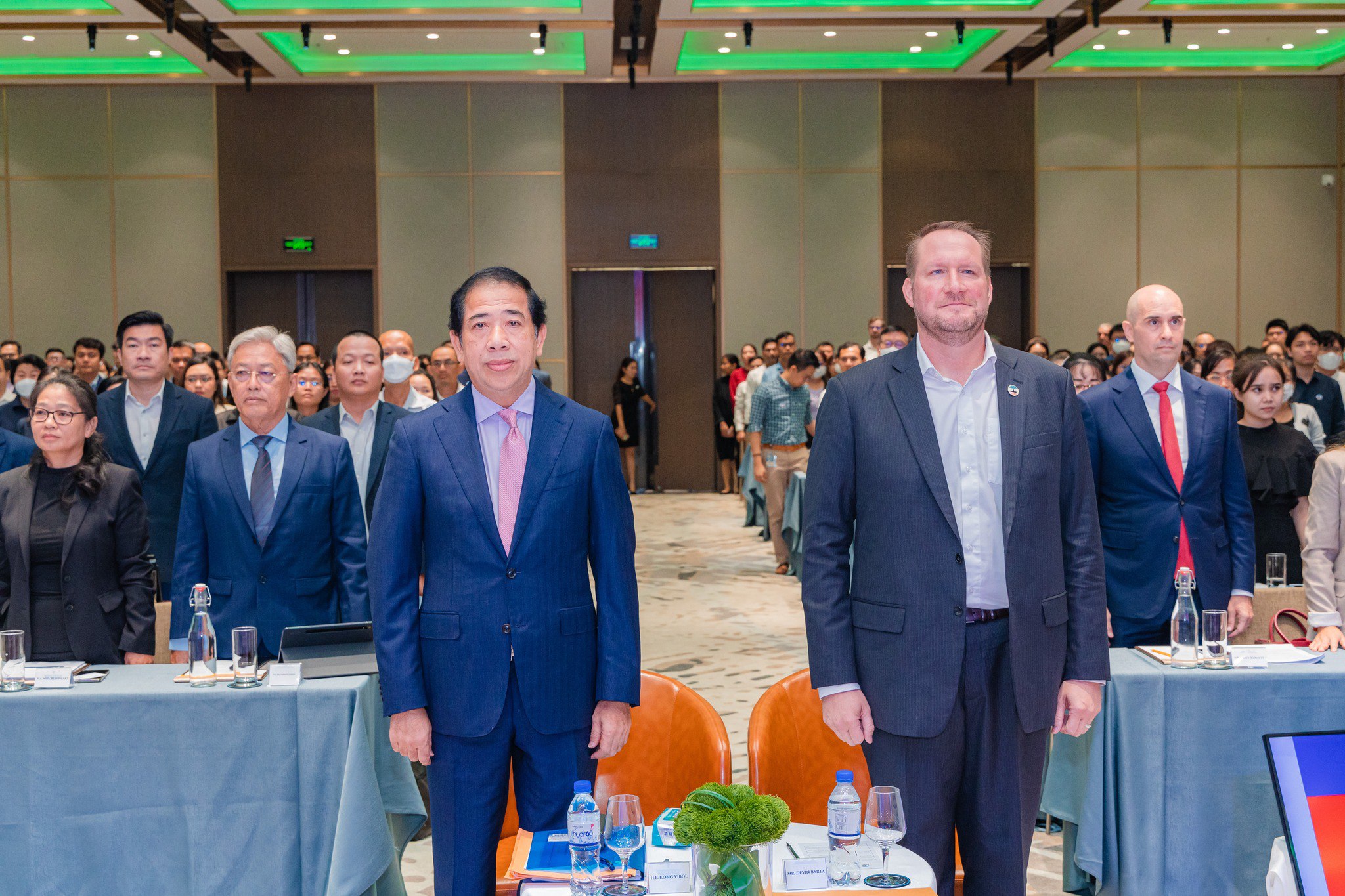
GDT director-general Kong Vibol (left) and Devin Barta (right), head of AmCham, attend the June 21 workshop. GDT
In response to several concerns and challenges, the General Department of Taxation (GDT), in collaboration with the American Chamber of Commerce in Cambodia (AmCham), held a June 21 workshop on recent tax policy updates. The updates aim to encourage fair and transparent competition between businesses.
GDT director-general Kong Vibol addressed the workshop, attended by about 200 members of AmCham, investors, business owners and their representatives.
Vibol thanked Devin Barta, head of AmCham, for the organisation’s support and cooperation as representatives of the private sector, noting that AmCham’s participation in the forum would encourage fair, transparent, efficient and equal competition between businesses.
He said the cooperation and participation of the private sector reflected a growing will to strengthen tax compliance.
“Peace and political stability are the foundation that has allowed us to maintain the sustainability and growth of tax income, despite the difficult phase of Covid-19 and changes in the global economic context, caused by the global downturn,” he added.
Vibol continued that as Cambodia gears up for the July 23 general election, the tax income situation in the five months of this year has improved. This reflects the public’s trust in the Kingdom’s economic and political stability, he added.
The GDT quoted Barta as saying that he was confident the new taxation laws would make it simpler for taxpayers to meet their obligations.
Bun Neary, deputy director-general of the GDT, noted that the new taxation law – promulgated by the King on May 16 and comprised of 20 chapters and 255 articles – stipulated 15 kinds of tax, four of which had been amended.
First, the specific tax on certain merchandise and services was changed to specific tax. Second, the tax on house rentals and land was changed to tax on property rental. Third, the stamp tax was changed to advertising tax. And fourth, taxes on all means of transportation and vehicles were changed to taxes on means of transportation.
A GDT statement said the new law responded to concerns and challenges raised by the private sector. It had sought input into the law from businesses and their owners, as well as the relevant ministries and institutions.











